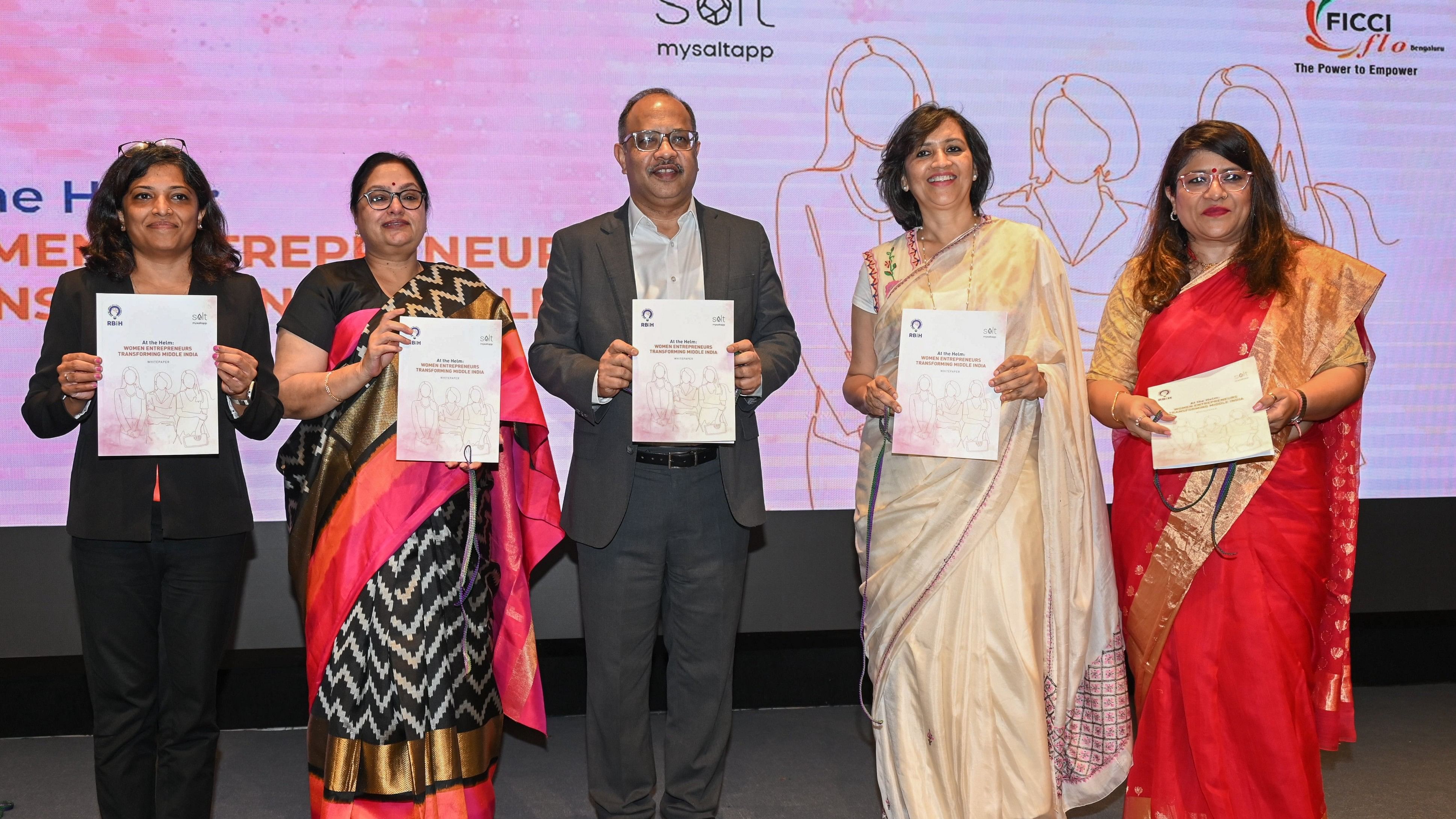
Members of Reserve Bank Innovation Hub, FICCI Flo and SALT mysaltapp unveiling the white paper in Bengaluru on Thursday.
Credit: DH Photo/ S K Dinesh
Bengaluru: A white paper studying 300 women entrepreneurs from 30 tier II and III cities of India found 47 per cent of them in the 30-44 year age-bracket, while 30 per cent were aged between 45 to 60 years, reflecting that enterprise comes late to this side of the gender divide.
The study, released here on Thursday by the Reserve Bank Innovation Hub in collaboration with SALT-mysaltapp, also highlighted that merely 3 per cent of the respondents accessed external funding, such as bank loans or equity investments, to start or expand their businesses. About 62% were self-funded, while 14.9 per cent received support from friends and family.
According to the report, a meagre 2 per cent of those surveyed availed benefits of government policies or grants.
On average, women in India receive credit for only up to 27 per cent of deposits made by them, whereas men receive up to 52 per cent, demonstrating a gender gap of 25 per cent in access to credit on deposits, per the report.
Amongst the women entrepreneurs surveyed, a common approach to business growth involved organic expansion, primarily through reinvesting profits and leveraging family capital.
Besides the vast gap in financing for these women-led ventures, the white paper also found a severe information gap. “The lack of gender-disaggregated data presents a significant barrier to improving women’s access to financial services,” underscored Rajesh Bansal, chief executive of Reserve Bank Innovation Hub, as he unveiled the document.
Furthermore, the journeys of these entrepreneurs involved challenges ranging from securing funds to managing caregiving duties and navigating business expansion during periods of childbearing and parenting.
Roughly 35 per cent of the women were forced to temporarily pause their entrepreneurial endeavours to fulfil caregiving responsibilities, while 45 per cent transitioned into or joined family businesses once their children reached a more independent age.
Notably, 40.9 per cent of women lived in joint families, either with their parents or their parents-in-law, tapping into this support network to balance both familial and career demands.
Motivations varied - while 32.17 per cent were driven by personal interest, 39.53 per cent desired economic independence.
Among those interviewed, 14 per cent possessed graduate degrees, while a combined 55 per cent had pursued higher education. About 39 per cent possessed postgraduate degrees across varied disciplines, with an additional 16 per cent holding MBAs.